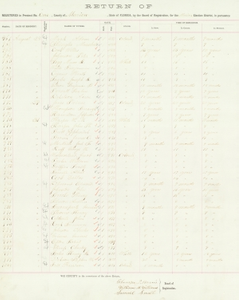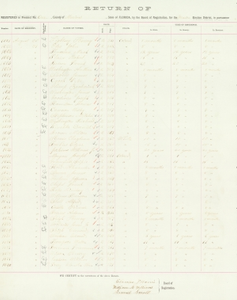Wisconsin. Supreme Court
Description
The Wisconsin constitution allowed black citizens to vote, provided that the idea was "submitted to the vote of the people at a general election, and approved by a majority of all the votes cast at such election." When in 1849 Wisconsin residents voted on that question, African American voting rights were approved 5,265 to 4,075. But there were several issues on the ballot that day and less than half of all people who went to the polls voted on the black suffrage question. Because "a majority of all the votes cast" that day did not approve black suffrage (the majority had not voted on it at all), most observers believed that African Americans were not permitted to vote in Wisconsin. In subsequent referendums in 1857 and in 1865, voters rejected black suffrage outright. During the 1865 referendum, Ezekiel Gillespie, a leader of Milwaukee's black community, was not allowed to register to vote. Working with attorney Byron Paine (who had argued against the Fugitive Slave Law in th
Text
We believe that online reproduction of this material is permitted because its copyright protection has lapsed or because sharing it here for non-profit educational purposes complies with the Fair Use provisions of the U.S. Copyright Law. Teachers and students are generally free to reproduce pages for nonprofit classroom use. For advice about other uses, or if you believe that you possess copyright to some of this material, please contact us at asklibrary@wisconsinhistory.org.





















